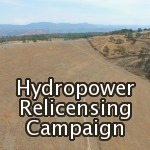Article from Stocktonia.
https://stocktonia.org/2023/01/04/eulogy-for-an-deltakeeper/
Inspired and inspiring, Bill Jennings fought to save the Sacramento-San Joaquin Delta.
by Michael Fitzgerald January 4th, 2023
Bill Jennings, a virtuoso environmentalist—a David who gave shiners to many a water-grabbing Goliath in his almost 40-year fight to save the Delta and other rivers—died Dec. 27. He was 79.
Jennings was admitted to Dameron Hospital suffering from pneumonia which followed a bout of Covid-19. He also had heart problems. His exact cause of death is unclear.
“Bill was a genius,” said Barbara Barrigan Parilla of Restore the Delta. “Nobody could ever fill Bill’s shoes.”
Born in Kentucky in 1943, Jennings attended the University of Tennessee, joining the Civil Rights Movement, and opposing the Vietnam War, according to an obituary published by California Sportfishing Protection Alliance, or CSPA (pronounced sea-spa).
“As a young man, Bill spent many years traveling back and forth across the country, selling pipe tobacco products out of his van” the obit says, adding, “He spent several summers in West Yellowstone, Montana, where he learned to fly fish. Later he spent many summers camping in Yosemite Valley.”
Jennings settled in Stockton in the ’80s. He opened a shop in Lincoln Center. There, selling tobacco, pipes, and fly-fishing gear, he got involved in what may well be the most remarkable environmental victory in Stockton history.
Anglers told him about fish kills on the Mokelumne River near Camanche Dam. “I went up, and sure enough, there were garbage cans full of fish,” he recalled in 1995. “It was the fish kill that started us off.”
Jennings formed the Committee to Save the Mokelumne River. He pinpointed the main polluter: Penn Mine, an abandoned copper and zinc mine near Campo Seco, was bleeding acids into the river.
East Bay Municipal Utility District acquired Penn Mine incidentally when it built Camanche Reservoir in 1962. East Bay MUD didn’t clean the mine up and didn’t intend to.
A billion-dollar Oakland waterworks, East Bay MUD was a giant with an ogre’s attitude, a cadre of hardball lawyers and, it seemed, a callous disinterest for the rural areas from which it drew water.
ts powerful bigwigs probably thought the Devil would serve Klondike Bars in Hell before a provincial organization held together with bailing wire and duct tape would best them in court.
Big mistake.
Working on a shoestring, Jennings combined near-religious devotion with meticulous research; taught himself marine biology; began building an encyclopedic understanding of California’s byzantine water regulations; and clobbered East Bay MUD.
It took 15 years.
Incidentally, some observers believe Jennings’ victory changed the culture at East Bay MUD to more environmentally and people friendly.
At some point Jennings closed his shop and became a full-time environmental warrior. For years there were times he didn’t know where his next meal was coming from.
But it was the life he wanted, to fight for his ideals, including one inherited from ancient Rome via California’s constitution: rivers are res publica, public property. They belong to all, or should.
“In many ways it was a description of Bill all his life,” Doug Obegi, a senior attorney with the National Resources Defense Council, said of Jennings’ victory. “Always putting the work first, putting himself second, willing to battle no matter the odds for what he believed was right.”
It helped that Jennings was media savvy. He seemed to know every environmental reporter and editorialist along every waterway. And the guy was a good quote.
For instance, in July a federal judge denied a motion by CSPA for a preliminary injunction to stop San Joaquin Valley irrigators from sucking more water from the Delta—a slam dunk, you would think, as the last census of Delta smelt found zero smelt. Zero.
Yet the judge refused to issue the injunction. Jennings quotably denounced the judge, the US Department of Fish and Wildlife and Bureau of Reclamation.
“The USFWS and Bureau have escorted Delta smelt to the scaffold and the judge signed the warrant,” he said.
Spineless regulators who kowtow to politically powerful water guzzlers at the Delta’s expense, a lifelong bane for Jennings, also served as grist for his acid wit.
“If we pursued rapists and thieves the way our regulatory boards pursue polluters, we could close all of our prisons,” he said.
There was also something funny about Jennings: the portly, pipe-smoking, white-whiskered man was a dead ringer for Santa Claus. Starry eyed kids constantly approached him reverently in public to ask if he was.
Santa he might have been to fish, gifting them much-needed water, but he thought our culture unhinged. “Perpetual growth is impossible in a closed system,” he wisely said.
The first people, who lived this idea, harmonized with the Delta for 10,000 years. The Euro-geniuses who disregard it at great profit have degraded the once-magnificent estuary to the point of collapse and extinctions in the relative blink of an eye.
“I’m just trying to preserve a vestige of the Delta for saner generations,” Jennings once told me.
Toward that end, he became head of Deltakeeper. From 1995-2005 he was admiral of a mini navy that monitored Delta water quality. Sometimes he and his interns sailed out at night and crawled on their bellies across private property to catch some polluting factory making illegal nocturnal discharges. Woe unto the polluters.
When Deltakeeper disbanded, Jennings became CSPA’s executive director, “carrying 5-10 water quality lawsuits at any given time. The program has cleaned up dozens of wastewater and industrial stormwater sources of pollution,” CSPA wrote.
Water is a labyrinth of law, arcane regulation, and numbing hearings. Jennings “went through hundreds of regulatory processes at the State Water Resources Control Board, regional water quality control boards, and other agencies,” CSPA wrote.
Jennings would stroll to the mic wearing his signature suspenders over a seersucker shirt, khakis, and a pork pie hat. Leaning on the lectern, he “presented data, and demanded solutions.”
“I think the folks of the state waterboard will miss him just because he’s a character,” said Chrtis Shutes, who worked with Jennings at CSPA.
Alex Breitler, a former environmental reporter for the Stockton Record, remembered one such hearing in 2005 in Oakland when Jennings caught the state illegally exporting Delta water.
Officials stammered that they didn’t need a permit because their federal counterparts had one. But Jennings knew the law. Pumping actually ceased while officials scrambled to obtain a permit.
“He did it,” Breitler marveled. “He shut the pumps down.”
Jennings once told me about a short story, “The Star Thrower.” A disconsolate man walking a beach happens on a guy rescuing living starfish stranded by receding tide, throwing them back in the sea.
The man thinks the starfish guy is feckless. Pathetic. Dwarfed by a pitiless universe. “He is a man, I considered sharply … and death is running more fleet than he along every sea beach in the world.”
But later he realizes that compassion for life—by selflessly helping life—humans rise above their base natures and touch the transcendence of a benevolent universe.
No, they make it a benevolent universe. Jennings was a star thrower. And if he still is, certain people down here better wear helmets.









